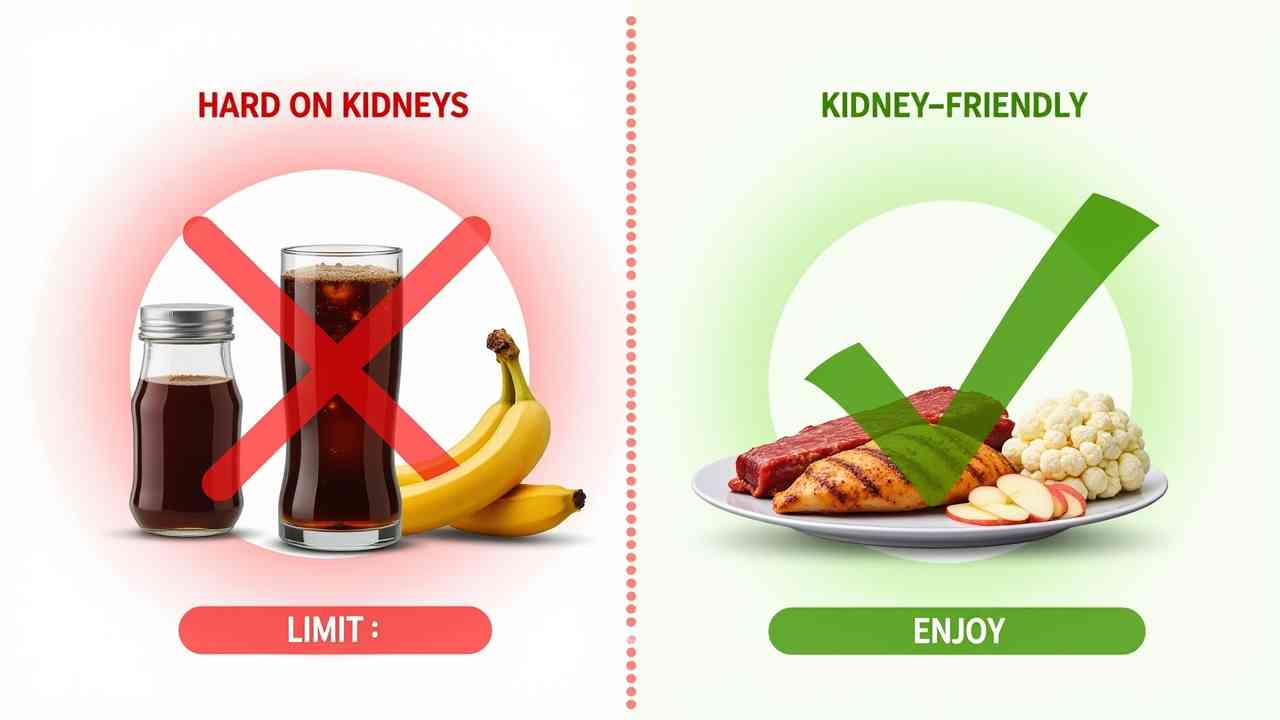
🩺 A Guide to a Healthy Kidney Diet (What to Eat for Kidney Health)
🩺 A Medical Guide to the Healthy Kidney Diet 🩺
❗ CRITICAL MEDICAL WARNING: A healthy kidney diet is a therapeutic, medical diet for people with Chronic Kidney Disease (CKD). The specific restrictions you need depend on your stage of kidney disease and your blood work. You must only follow this diet under the strict guidance of your doctor (nephrologist) and a renal dietitian. This guide provides general principles and is not a substitute for a personalized medical plan.
A diagnosis of kidney disease means you need to make important changes to protect your health. The single most powerful treatment you have is your diet. A kidney-friendly diet is designed to reduce the workload on your kidneys, which can help to slow the progression of the disease and make you feel better.
This guide will explain the core principles of this crucial diet. Let's explore the foundation of kidney health. ✅
🤔 What is the Core Philosophy of a Kidney Diet?
The core philosophy is simple: reduce the strain on your kidneys. Healthy kidneys are master filters, removing waste products and excess minerals from your blood. When they are diseased, they cannot do this job effectively. The diet is designed to limit the nutrients that are the hardest for your kidneys to handle. The three main nutrients to control are sodium, phosphorus, and potassium.
- What Foods Should You Limit or Avoid?
The most important part of a healthy kidney diet is knowing what to limit. This requires you to become a careful label reader and to focus on fresh, home-cooked meals.
1. Why is Limiting Sodium So Important?
Damaged kidneys cannot filter out excess sodium. This can cause high blood pressure, swelling (edema), and shortness of breath. You must avoid high-sodium foods like:
- Processed foods, fast food, and frozen dinners.
- Canned soups and vegetables (unless they are 'no salt added').
- Cured meats like bacon, sausage, and deli meats.
- Salty snacks like chips and pretzels.
2. Why is Phosphorus a Concern?
As kidney function declines, phosphorus can build up in your blood. This can pull calcium from your bones, making them weak. You need to limit high-phosphorus foods like:
- Dark-colored sodas (colas).
- Dairy products like milk and cheese.
- Nuts and peanut butter.
- Processed meats and many packaged foods with phosphate additives.
3. When is Potassium a Problem?
In the later stages of kidney disease, your kidneys may not be able to remove excess potassium. High potassium levels can be very dangerous for your heart. Your doctor will tell you if you need to limit high-potassium foods like:
- Bananas, oranges, and melons.
- Potatoes and tomatoes.
- Beans and lentils.
✅ What Foods Are Generally Safe on a Kidney Diet?
A healthy kidney diet is full of delicious, fresh foods. Focus on these kidney-friendly choices:
- Fruits: Apples, berries (strawberries, blueberries), and grapes.
- Vegetables: Cauliflower, bell peppers, onions, and cabbage.
- Grains: White bread and white rice are often recommended over whole grains because they are lower in phosphorus and potassium.
- Protein: The amount of protein you can eat will be determined by your doctor. The focus is on high-quality protein in controlled portions, such as chicken, fish, and egg whites.
The cool autumn season is a perfect time to enjoy a warm, homemade meal of roasted chicken with a side of steamed cauliflower. It's a simple, comforting, and kidney-friendly dish. By working closely with your healthcare team, you can create a diet that is both safe and delicious. 🍂